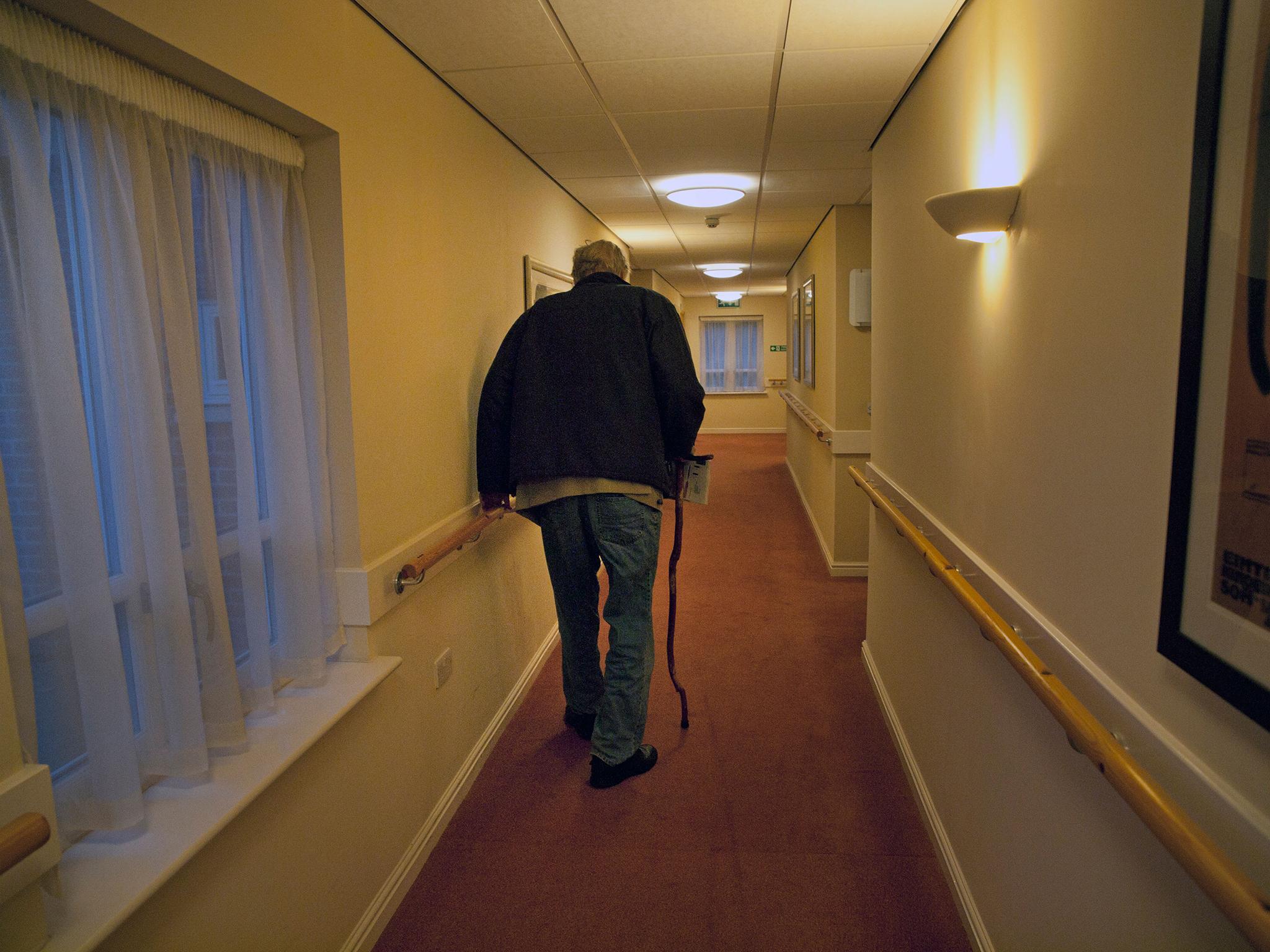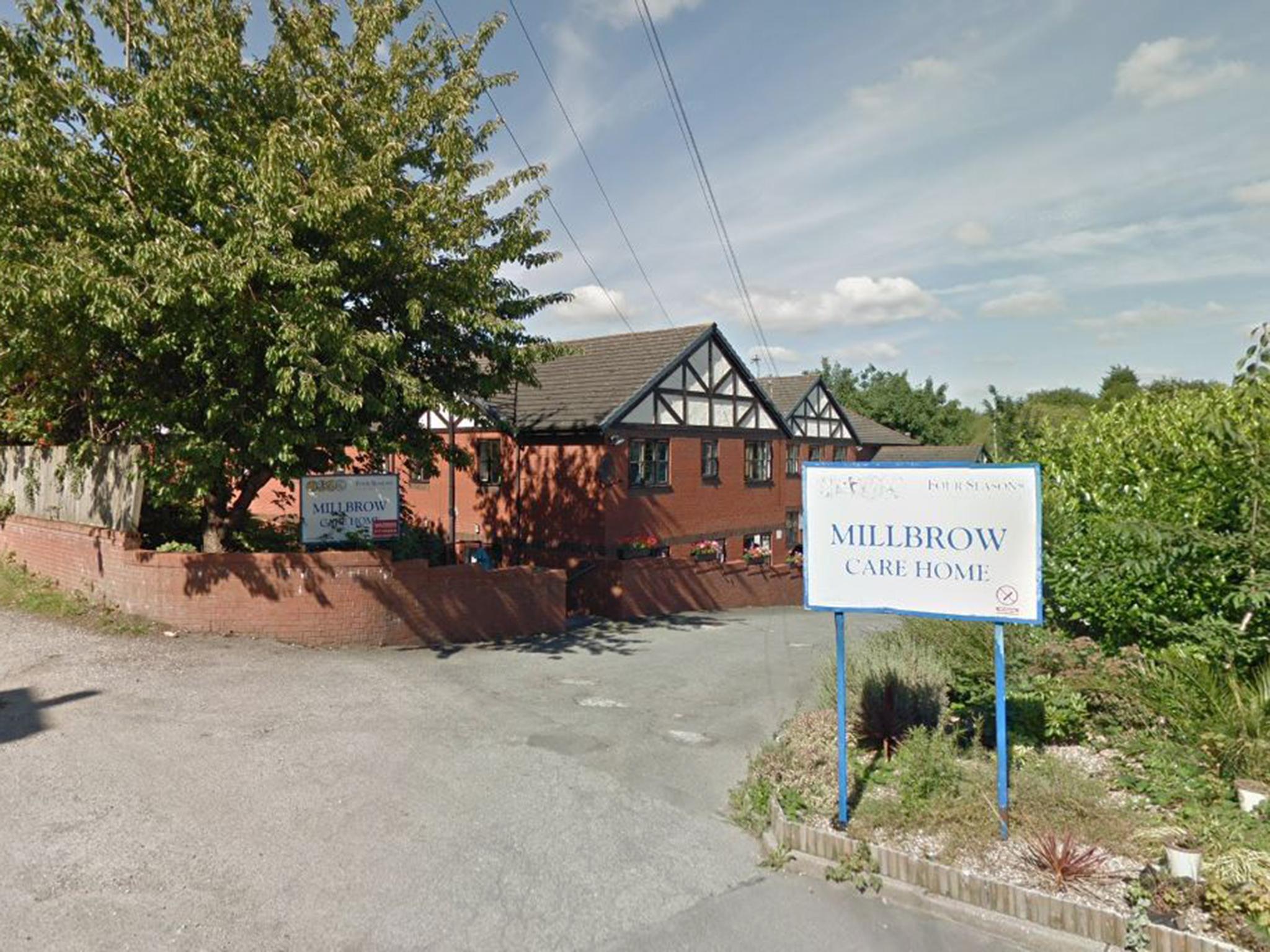Does the social care crisis demonstrate the failure of outsourcing public services?
Nearly a decade of austerity budgets and declining funding for local governments, which pay for many outsourced services, has strained the system

Your support helps us to tell the story
From reproductive rights to climate change to Big Tech, The Independent is on the ground when the story is developing. Whether it's investigating the financials of Elon Musk's pro-Trump PAC or producing our latest documentary, 'The A Word', which shines a light on the American women fighting for reproductive rights, we know how important it is to parse out the facts from the messaging.
At such a critical moment in US history, we need reporters on the ground. Your donation allows us to keep sending journalists to speak to both sides of the story.
The Independent is trusted by Americans across the entire political spectrum. And unlike many other quality news outlets, we choose not to lock Americans out of our reporting and analysis with paywalls. We believe quality journalism should be available to everyone, paid for by those who can afford it.
Your support makes all the difference.The residents of the Millbrow Care Home were already frail with old age and illness when they started losing weight at alarming speed.
The reason: they were being neglected, an investigation revealed. For more than a year they had been deprived of food and drink for hours on end. They were not being given the medication they had been prescribed. There were outbreaks of vomiting and diarrhoea, and outdated food in the kitchen. No one was in charge of preventing the spread of infections, and managers rarely made an appearance.
The home in Widnes, Cheshire, was run by a private enterprise, Four Seasons Health Care, the UK’s second-largest provider, which in turn was owned by Terra Firma, one of the world’s largest private equity groups.
The disturbing revelations of conditions at Millbrow under Four Seasons, described in a recent government report, forced the local Halton Borough Council to rescue the home late last year. Caregivers were put on the council’s payroll. Managers and nurses were added. Repairs were undertaken – even the fire alarms had not been working properly.
Under Labour and Tory governments alike, Britain has been a pioneer in outsourcing public services, seeing it as a way to reduce public expenditures, create more jobs in the private sector and, presumably, deliver services more efficiently.
For years, outsourcing seemed to accomplish those goals by and large, making the UK the world’s second-largest market for outsourcing in the world, after the US.
But recently outsourcing has come under fire, not only from Labour leader Jeremy Corbyn but from parts of the Government itself.
A report by the Government’s National Audit Office shows that taxpayers are expected to pay more than £200bn to private contractors for projects and services over the next 25 years. The agency also found that with changing economics schools could cost 40 per cent more, and hospitals 70 per cent more, when undertaken through private-finance initiatives rather than though the government.
Nearly a decade of austerity budgets and declining funding for local governments, which pay for many outsourced services, has badly strained the system.

The spectacular collapse last month of Carillion, the Government’s biggest outsourcing contractor, and signs of deepening financial problems at Capita, another major contractor, have only underscored the troubles.
“The model is flawed, it’s broken, it’s got cracks from top to bottom,” said Nick Hood, a social care expert and an adviser at Opus Restructuring, an insolvency specialist based in London.
Nowhere are the problems more glaring than in the care of the elderly and those with disabilities. A third of Britain’s 5,500 care providers are at risk of failure, Hood says – a rate well above other sectors of the economy.
Last year, Cleeve Link, a major company providing home care in Gloucestershire, went into liquidation. Gloucestershire County Council covered hardship payments for the staff, and even provided free gasoline for homecare helpers so they could continue looking after their patients.
“We went into a crisis mode,” says Margaret Willcox, president of the Association for the Directors of Adult Social Services, who was involved in the takeover of Cleeve Link’s services. “If shareholders suddenly decide they want out from the business, you’re completely stranded.”
At the heart of the issue is whether the UK can afford high-quality services at a time of relentless budget-cutting. The problem has worsened with Brexit, which has slowed growth and led to an exodus of young, foreign workers.
“The British Government allowed itself to offer a Swedish-style public sector while only being able to raise an American level of taxes, putting massive permanent pressure on the Government,” says Tony Travers, a professor of government at the London School of Economics.
Governments have become good enough at driving down the prices of contracts, he adds, that companies struggle to make a profit. Carillion collapsed in part because it had underbid for contracts that became unsustainable when it ran into delays and cost overruns.

That pattern seems to have played out at Millbrow, which has been taken over by the local council while the company restructures.
Clients in the UK system fall into two broad categories: those who are self-financed, and those whose care is paid by the local council. But providers and healthcare experts say that local governments typically fund little more than half the actual cost, forcing providers to charge higher rates to self-funded residents.
Four Seasons, the provider, says it had trouble recruiting and retaining staff, forcing it to rely on temporary workers. “The home had not been financially sustainable and had been making a loss for some time,” the company says. “So we were effectively paying to provide care.”
As conditions deteriorated, both caregivers and the relatives of residents say, a revolving door of managers led to frequent breakdowns in communication, to the point that no one was aware the home was nearing collapse.
Staffing levels on a floor caring for residents with dementia were “horrendous”, according to Lisa Riley, a 39-year-old caregiver. At one point, she says, there were only four employees to look after 35 people. This meant some could not be supervised around the clock and would wander, sometimes tripping and falling. “We tried, that’s all we can say,” she says.
Public inspectors found residents at risk of choking because they were not made to sit upright when they ate. Staff members were seen handling soiled laundry without wearing gloves, the inspectors added in the government report, and cushions and other material were “heavily contaminated, and had a strong malodor”.
In the last year, at least 13 nursing homes run by Four Seasons have either closed or, like Millbrow, been taken over by local councils. One home in Hampshire that closed had to transfer its elderly residents. Within a month, five had died, according to a former employee.

“Some of these people should not be moved because they’re not going to last,” says the employee, Lynne Wells. “And they didn’t. A lot of these people are in their nineties. It’s just so sad, really.”
Saddled with £500m in debt, Four Seasons is in restructuring talks with an American hedge fund, H/2 Capital Partners, which holds most of the debt. Adult care experts worry about the ramifications if a major company like Four Seasons, which cares for about 17,000 elderly people, should collapse like Carillion.
Last year, Mears Group, another prominent care provider, ended a 15-year contract with the Essex Council, saying the payment rate fell short of what was recommended by an industry association. “Mears believes that no organisation can deliver a care service at the new rate safely or legally,” the company says.
Eventually, says Hood, “the Government will have to take the care-home market in some form of public partnership”.
At Millbrow, local officials say they are able to provide better care than Four Seasons had, even on the same budget, because they do not have to squeeze out a profit and be accountable to shareholders.
On a recent visit, electricians were seen installing wiring for a new fire alarm system. Schedules for “infection control training” and “moving and handling refreshers” were posted on a whiteboard nearby. Staff were being trained how to deal with patients with dementia. In the back garden, builders were looking at fixing what had been open sewers.
“Everything revolves around money,” says Riley, the caregiver, as she gave a resident her noon meal. “But at the end of the day it’s about vulnerable people. We need to take care of them.”
© New York Times
A spokesperson for Four Seasons said in response to this piece:
“We would not defend the performance of Millbrow Care Home, which was not representative of our homes.
“We had local difficulties in recruiting and retaining staff, particularly nurses, with the right level of skills, which necessitated a high use of temporary agency staff and resulted in turn in challenges to maintain the standards that we expect all our homes to provide for residents. Although many of the residents and their relatives had said there were happy with the care and support provided by our permanent care team, the home had been struggling with staffing and associated quality issues for a long while.
“Moreover, the home had not been financially sustainable for some time. The fees it was receiving were about £150 less, per resident per week, than the costs of providing care and operating the home; even on a ‘no profit’ basis. The home, which we leased, was ultimately taken over by the council because it would otherwise have closed and capacity in the local area would have been lost.
“Sixty-five per cent of our homes in England are rated as “good” or better, which is 20 percentage points higher than two years ago. Across all our homes we have been recording satisfaction levels averaging around 97 per cent during recent months in feedback from residents, relatives and care professionals.
“We are not aware of any other Four Seasons-operated homes being taken over by local councils. In most instances home closures have been because the homes were not financially viable.”
Join our commenting forum
Join thought-provoking conversations, follow other Independent readers and see their replies
Comments